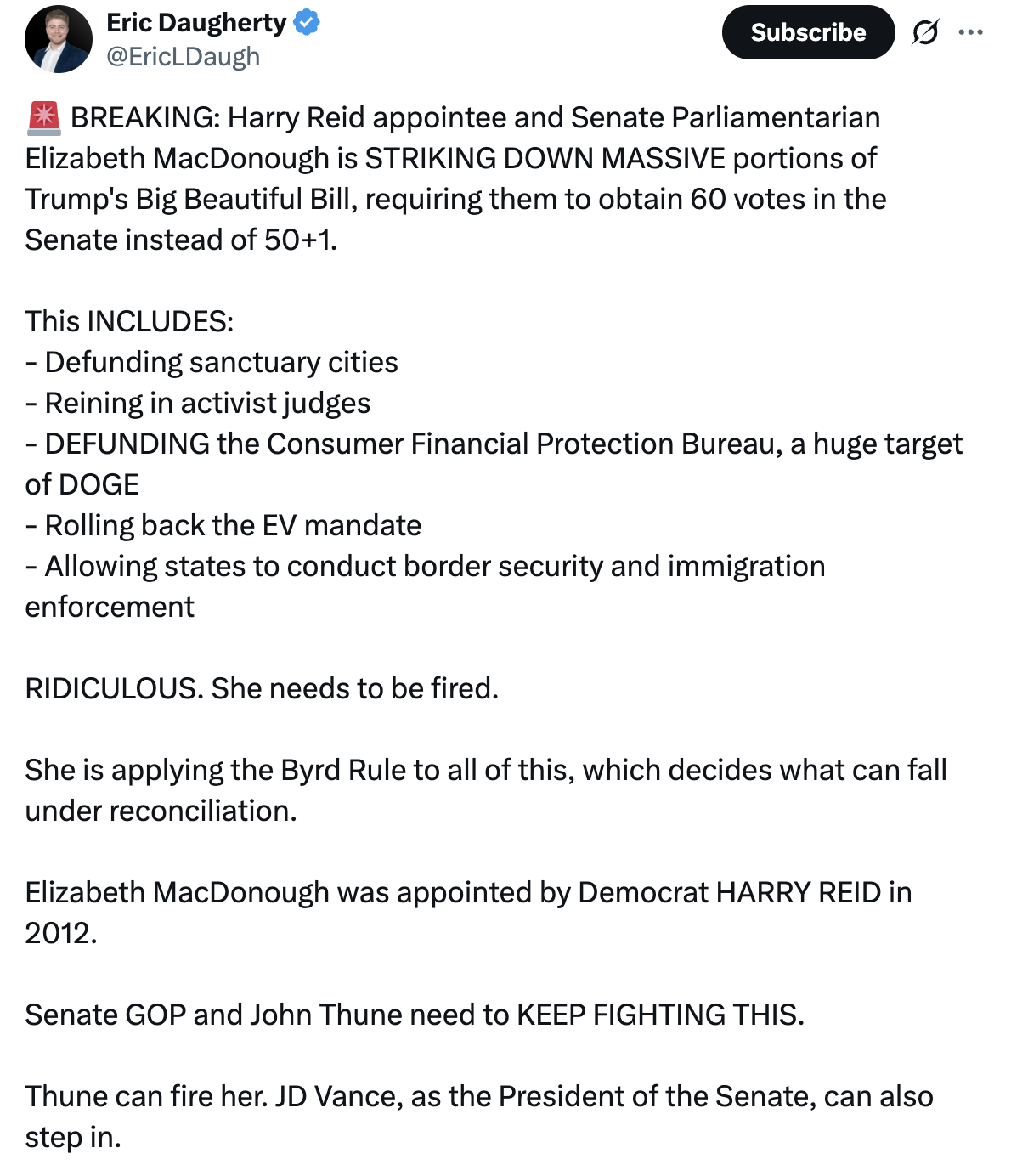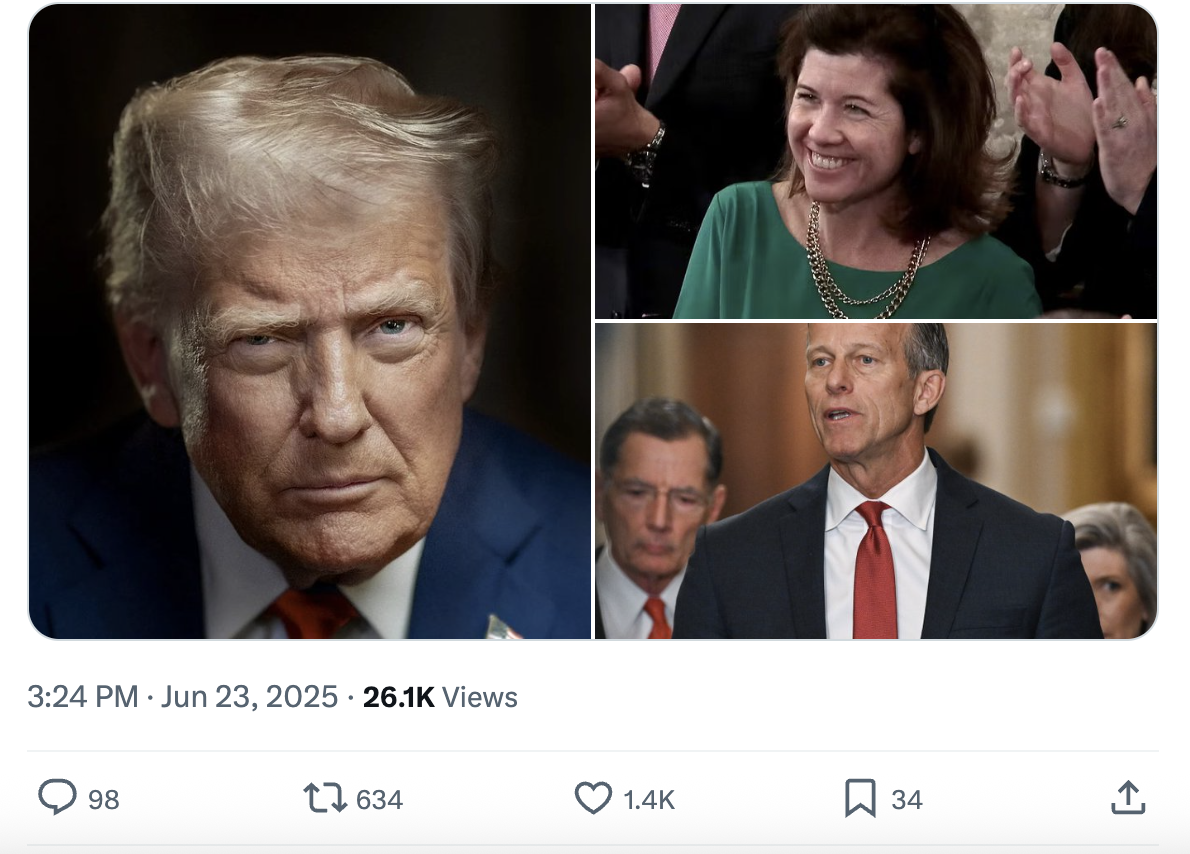Politics
Senate Parliamentarian Makes Shocking Move Against ‘Big, Beautiful Bill’

Vast swaths of President Donald Trump’s “big, beautiful” tax cut bill are likely going back to the drawing board after the parliamentarian of the U.S. Senate struck down Republican attempts to leverage the legislation as a catch-all for wishlist items in areas like immigration, judicial activism, and government regulations.
The decision, handed down by Elizabeth MacDonough, is a blow to the GOP’s hopes of an omnibus bill delivering much of President Trump’s domestic agenda with a single swipe of his pen. Among other things, the One Big Beautiful Bill Act would have stripped sanctuary cities of federal funding and imposed limits on the ability of federal district courts to issue nationwide injunctions.
Conservatives immediately called MacDonough’s decision suspicious, citing her appointment to the nonpartisan role by the late former Democratic Senate Majority Leader Harry Reid (D-NV).
“RIDICULOUS. She needs to be fired,” wrote FLVoiceNews’ Eric Daugherty. “She is applying the Byrd Rule to all of this, which decides what can fall under reconciliation.”
The so-called Byrd rule, named after the late Sen. Robert Byrd (D-WV), prevents the inclusion of “extraneous” items that may be included in bills passed through reconciliation, or a simple majority. Instead, the stripped components will now be required to achieve 60 votes for passage, a monumental hurdle when Republicans control just 53 votes.
Daugherty suggested that Majority Leader John Thune (R-SD) has the power to fire MacDonough, and should.
“Senate GOP and John Thune need to KEEP FIGHTING THIS,” he added. “Thune can fire her. JD Vance, as the President of the Senate, can also step in.”


Under reconciliation, only legislative items pertaining to the inlay or outlay of federal funds may be included. This typically includes items like continuing resolutions to keep the government funded, spending additions or tax cuts, the latter being the signature part of Trump’s “big, beautiful” bill.
Made harder is the Republicans’ argument that defunding sanctuary cities is a direct federal allocation, given that no cities have yet run afoul of a law that does not exist, meaning no increase or decrease in spending can be predetermined.
Earlier this month, Sen. Thune promised to respect the parliamentarian’s decision, saying he would not “overrule” her.
“We’re not going there,” he previously said, according to Politico.
One caucus member, Sen. Mike Lee (R-UT), has already said he plans to call for MacDonough’s overruling if her decision reeks of politics.
“Disagreeing with the Senate parliamentarian may be warranted if the parliamentarian gives bad advice, and it’s wrong to suggest otherwise,” he wrote on X after negotiations between MacDonough and Senate staffers began.
Democrats have already tried to remove some of the legislation’s elements that were stripped on Monday. Senate Minority Leader Chuck Schumer (D-NY) vigorously contested the inclusion of restrictions on federal judges. Sen. Dick Durbin (D-IL) told reporters this month that his caucus will look to also contest parts of the bill’s immigration agenda, saying his discussions with MacDonough were just getting started.

